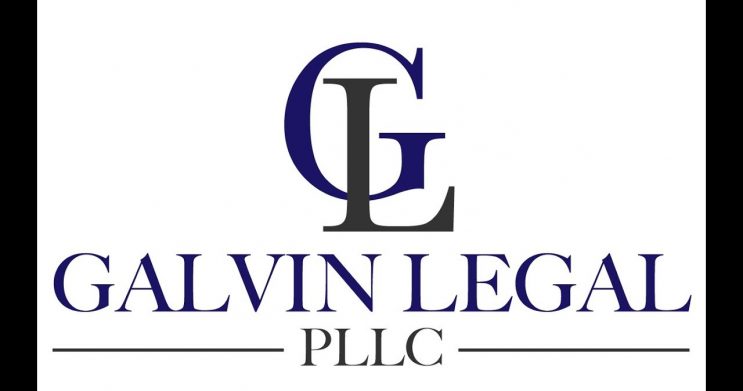
Did you lose money investing in Watermark Lodging Trust?
Galvin Legal, PLLC is launching an investigation on behalf of investors who may have suffered losses investing in Watermark Lodging Trust, a non-traded real estate investment trust created by the merger of Carey Watermark Investors and Carey Watermark Investors 2, at the recommendation of their financial advisor. If you suffered losses investing in the investment, then Galvin Legal, PLLC may be able to help you recover your losses in a Financial Industry Regulatory Authority (“FINRA“) arbitration claim against the broker-dealer and/or registered representative that recommended the investment.
The Carey Watermark REITs were formed to invest primarily in the lodging and lodging-related sectors, and the combined company will oversee a portfolio of 33 lodging assets previously valued at $4.6 billion.
If you suffered losses and would like a free consultation with a securities attorney, then please call Galvin Legal, PLLC at 1-800-405-5117.
UPDATE 5/21/2020: Watermark Lodging Trust plans to file its quarterly financials for the first quarter of 2020 no later than 45 days after the original due date of May 15, 2020. The REIT is relying on an order issued by the Securities and Exchange Commission allowing the company to delay filing due to the circumstances related to COVID-19. “The company is unable to file…on a timely basis due to delays in the preparation and final review…by the relevant parties within the company, due in part by the attention and resources the company has focused on addressing the severe impacts of the COVID-19 pandemic on our business and operations,” the company said in a filing with the SEC.
Watermark Lodging Trust indicated that the full extent of the effects of the COVID-19 pandemic on its business for the foreseeable future cannot be predicted with certainty, but it has suspended operations at approximately half of its hotels and significantly reduced staffing levels at its remaining properties. “The company has incurred and will continue to incur significant costs related to the reductions in service at the hotels, including as a result of employee terminations or furlough arrangements,” the filing stated. A number of the company’s hotels have entered into cash management arrangements with the lenders on the related mortgage loan agreements and it expects more to do so in the coming months, absent relief from lenders or government intervention. The REIT has sought relief from all of its lenders to defer interest payments and waive the application of certain cash flow covenants. In addition, approximately $277 million of indebtedness is scheduled to mature through December 31, 2020. This is nonrecourse mortgage debt, and the company has extension options for a portion of it. If the company’s lenders do not provide covenant relief or if the REIT is unable to repay, refinance or extend the debt, then the lenders may declare events of default and seek to foreclose on the underlying hotels. The REIT said that it may also seek to give properties back to the lenders.
Watermark Lodging Trust has begun active efforts to raise capital through a variety of strategies, including asset sales, potentially at discounted prices; incurrences of debt; joint venture arrangements; and/or issuing equity securities in transactions which may be dilutive to stockholders. “The company’s operations for the foreseeable future will continue to be significantly impacted by the pandemic,” the filing stated. “Even when all of our hotels are able to reopen, we expect demand for our hotels to recover slowly and over time until the spread of the virus, the fear of its spread and government-imposed quarantines and restrictions on travel and large gatherings subside. In addition, the company expects to have to reconfigure the layout of its properties, add cleaning services and systems and take other steps to seek to address customer concerns, which will require the company to incur expenditures which may be material.”
The REIT recently suspended distributions and redemptions, subject to limited exceptions, as reported in March.
UPDATE 4/13/2020: On April 13, 2020, Carey Watermark Investors and Carey Watermark Investors 2 merged in an all-stock transaction to create Watermark Lodging Trust, an internally managed non-traded REIT.
If you suffered losses and would like a free consultation with a securities attorney, then please call Galvin Legal, PLLC at 1-800-405-5117.
What are Real Estate Investment Trusts (REIT)?
A Real Estate Investment Trust (“REIT”), such as Watermark Lodging Trust, is a complex investment that is generally only suitable for sophisticated high-net worth investors, and then only in certain circumstances. A REIT is an entity that owns, and may also manage, income producing real estate. REITs pool capital from multiple investors and use it to purchase properties, similar to mutual funds and other pooled investment vehicles.
A Real Estate Investment Trust can be offered in several different forms. A Public Exchange Listed REIT is registered with the U.S. Securities and Exchange Commission (“SEC”) and is publicly traded on a national securities exchange. A Public Non-Listed REIT is registered with the SEC, but does not trade on a major securities exchange. Finally, a Private REIT, also known as a private-placement REIT, is not registered with the SEC and does not trade on a national securities exchange.
If you suffered losses and would like a free consultation with a securities attorney, then please call Galvin Legal, PLLC at 1-800-405-5117.
Watermark Lodging Trust Due Diligence Requirement
FINRA requires brokerage firms to conduct due diligence on investments, such as Watermark Lodging Trust, and to conduct a suitability analysis when recommending securities to a customer that takes into account the customer’s knowledge and experience. FINRA Rule 2111(a) states that “a member or an associated person must have a reasonable basis to believe that a recommended transaction or investment strategy involving a security or securities is suitable for the customer, based on the information obtained through the reasonable diligence of the member or associated person to ascertain the customer’s investment profile. A customer’s investment profile includes, but is not limited to, the customer’s age, other investments, financial situation and needs, tax status, investment objectives, investment experience, investment time horizon, liquidity needs, risk tolerance, and any other information the customer may disclose to the member or associated person in connection with such recommendation.”
Rule 2111 is composed of three main obligations: reasonable-basis suitability, customer-specific suitability, and quantitative suitability. Brokerage firms that fail to conduct adequate due diligence on investments they recommend, such as Watermark Lodging Trust, or that make unsuitable recommendations can be held responsible for the customer’s losses in a FINRA arbitration claim.
If you suffered losses and would like a free consultation with a securities attorney, then please call Galvin Legal, PLLC at 1-800-405-5117.
Request a Free Consultation with a Securities Attorney
If you suffered losses investing in Watermark Lodging Trust and would like a free consultation with a securities attorney, then please call Galvin Legal, PLLC at 1-800-405-5117.
This information is all publicly available and is being provided to you by Galvin Legal, PLLC.
Galvin Legal, PLLC is a national securities arbitration, securities mediation, securities litigation, securities fraud, securities regulation and compliance, and investor protection law practice. For more information on Galvin Legal, PLLC and its representation of investors, please visit www.galvinlegal.com or call 1-800-405-5117.

